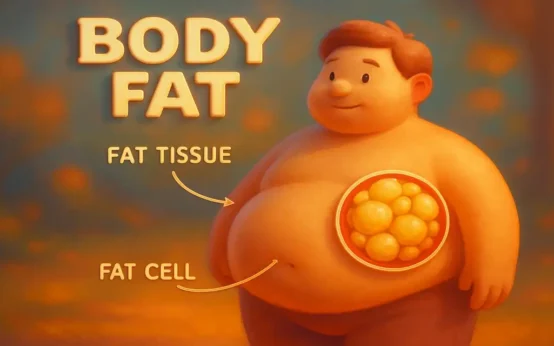Depression can feel like a heavy fog that will not lift. You might blame yourself, your willpower, or your personality. But sometimes, that sadness is not the whole story.
For many people, Depression as a Symptom means the low mood is pointing to something deeper. It might be a health problem, a hormone shift, long-term stress, or another mental health condition.
When you see depression as a possible sign rather than your whole identity, it can open the door to better questions, better care, and real relief.
What Does It Mean When Depression Is a Symptom?
When depression is a symptom, it is a signal that something else might be going on in your body or mind. A symptom is like a warning light on a car dashboard. The light itself is not the engine problem, but it tells you to look under the hood.
Depressed mood can show up with physical illness, hormone changes, ongoing stress, or other mental health conditions. For some people, depression is the main diagnosis, like major depressive disorder. For others, it is one piece of a bigger picture, such as thyroid disease or bipolar disorder.
Both situations are real, painful, and deserve care. The difference is that when depression is part of another condition, the treatment plan often needs to target that root cause too, not just the mood.
Symptom vs disorder: why the difference matters
A symptom is a sign something is wrong. For example, a fever is a symptom of an infection. The fever is not the disease, it just shows that your body is fighting something.
A disorder is a full condition with a pattern of symptoms, like major depressive disorder. With mood, sadness, low energy, and loss of interest can be symptoms of many problems, including medical issues, sleep problems, trauma, or relationship stress.
When doctors and therapists see depression as only a disorder, they might miss other pieces. If they see it as a possible symptom, they are more likely to look deeper instead of stopping at the word “depression.”
Common Conditions Where Depression Shows Up as a Symptom
Depression can be part of many other health issues. Knowing this does not mean you should self diagnose. It can simply help you bring better questions to your doctor or therapist.
Sometimes, treating a hidden medical issue or another mental health condition makes the depression ease up too. Only a trained professional can sort this out, but your observations matter.
Physical health problems that can cause depression symptoms
When the body is out of balance, mood often follows. Conditions that can bring on depression symptoms include:
- Thyroid problems, such as overactive or underactive thyroid
- Chronic pain
- Sleep disorders like sleep apnea or insomnia
- Heart disease
- Vitamin deficiencies, such as low vitamin D or B12
Research shows strong links between thyroid problems and mood. You can read more about how thyroid function and depression connect, and how treatment may improve mood. The Mayo Clinic also explains how thyroid disease affects mood.
If your depression is new, sudden, or feels very different from past episodes, it can help to ask your doctor about blood work and a full checkup.
Hormones, life stages, and mood changes
Hormones are like chemical messengers in the body. When they swing up or down, mood can shift too.
Life stages and conditions that can affect hormones include puberty, pregnancy, postpartum changes, and menopause. Conditions like PCOS (polycystic ovary syndrome) can also affect hormones. These shifts can change sleep, appetite, and brain chemicals, which might lead to depression as a symptom.
People of any gender can have hormone related mood changes. If you notice your mood drops in step with cycle changes, pregnancy, or midlife shifts, it is worth bringing that pattern up with a health professional.
Other mental health conditions where depression is part of the picture
Depression can also show up inside other mental health conditions, such as:
- Anxiety disorders: long-term worry may lead to burnout and emptiness.
- Bipolar disorder: low, depressed phases can follow high, energized phases.
- PTSD: numbness, guilt, and loss of interest can sit beside fear and flashbacks.
- ADHD: constant struggle, criticism, and overwhelm can lead to feeling hopeless.
- Substance use issues: alcohol or drug use can both mask and worsen low mood.
If only the depression is treated, while anxiety, bipolar disorder, or trauma is missed, you might not feel better for long. Treating the whole picture is key.
How to Tell if Your Depression Might Be a Symptom of Something Else
You do not need to figure everything out on your own. Still, noticing patterns can help your care team.
Pay attention to when the depression started, what was happening in your life, any new medications, and physical changes. If something feels “off” or different from what you expect with stress or sadness, that is worth talking about.
Use your notes as a tool, not a test. You are not trying to pass or fail, just to share clear information.
Warning signs that deserve a closer look
Some signs that your depression deserves a deeper look include:
- Depression that starts suddenly or soon after a new medicine
- Mood changes linked with big shifts in weight or sleep
- Depression along with strong physical symptoms, like constant fatigue, pain, or shortness of breath
- Depression that does not budge at all, even when you rest, eat well, or stay connected
Keeping a simple mood and symptom log for a few weeks can give your doctor or therapist helpful clues.
Questions to ask your doctor or therapist
You can go to an appointment with a short list of questions, such as:
- “Could my depression be a symptom of another problem?”
- “Should we check my blood work or hormone levels?”
- “Is any medicine or health condition I have likely to affect my mood?”
- “What other diagnoses should we consider, like anxiety, bipolar disorder, or ADHD?”
- “What should I watch for and write down before my next visit?”
Be as honest as you can about sleep, energy, appetite, alcohol or drug use, and any self harm thoughts. Your safety matters more than anything.
Finding the Root Cause Is a Brave Step
Depression can feel like the whole story, but often it is part of a larger picture. Seeing Depression as a Symptom does not lessen your pain, it gives you a path to better answers.
If you feel unsafe or have thoughts of self harm, reach out to a crisis line, a trusted doctor, or a therapist right away. You deserve care and support.
You are not broken or weak. Looking for the real cause of your depression is a strong, hopeful step toward feeling better and building a life that hurts less.
Related post:



 Importance of Hydration for Your Brain, Body, and Everyday Energy
Importance of Hydration for Your Brain, Body, and Everyday Energy  Healthiest Breakfast Cereal for Children
Healthiest Breakfast Cereal for Children  Anxiety Management Techniques
Anxiety Management Techniques  What Makes Fat in Our Body?
What Makes Fat in Our Body?  Best Diet to Reduce Risk of Diabetes
Best Diet to Reduce Risk of Diabetes  Long Term Effects from Botox
Long Term Effects from Botox